Pioneering New Relationships between Humans and Computers
Our university was founded in 2000 with the philosophy of “Open space, Open mind”. We want to develop (1) a high professional capability in Systems Information Science; (2) the ability to explore and conceptualize problems supported by research skills and associated attitudes; (3) the ability to express information through teamwork and co-creation; (4) the ability to learn autonomously and continuously (meta-learning); (5) humanity required for a specialist.
The undergraduate program aims for students to acquire the ideas, knowledge, and techniques necessary to design human-centered information systems. Students learn the fundamentals of information design, cognitive psychology, programming, etc. Also, how to think and construct advanced information systems and comfortable information environments. Through these, the program will develop human resources to explore new relationshipsbetween humans and computers.
The Master’s program of the Graduate School (Graduate School of System Information Sciences) aims for students to acquire the ability to conduct design research that addresses society’s current issues. The doctoral program aims for students to develop a systematic understanding of systems information science, cultivate knowledge and research methodologies in information design, and explore new theories and information design methods that contribute to academia and industry development.
Undergraduate School Education
The undergraduate entrance examination requires a mathematical subject. Hence, it may be regarded as a scientific design course. In the Information Design Course, students learn the latest theories and practices of information science and cognitive science in addition to design theories and expression methods to enrich people’s lives in the information society and develop the ability to be at the forefront of information design.
In the first and second year, students will develop to achieve Goal 2 to 5, as stated in the Diploma Policy. After the second year, students will develop Goal 1 in the specialized course and deepened Goal 2, 4 and 5 through Project Learning and Graduation Research.
1. Core Curriculum Subjects (Year 1 to 4)
Students are expected to acquire a wide range of culture and knowledge for autonomously conducting activities for the future to promote human development, social participation, understanding of science, technology and the environment, and health preservation.
2. Communication Subjects (Year 1 to 2)
Students to develop multi-modal and multi-literate communication skills within the contexts of science, engineering and design.
3. Common Subjects in Each Course
Students to develop fundamental professional skills such as computational thinking, mathematical thinking and media literacy. For Project Learning in Year 3, students will learn to identify problems in society or community and then solve and implement solutions in a team.
4. Information Design Course (Year 2 to 4)
Students to acquire knowledge, methods, and attitudes necessary for working on various problems through the experiences associated with the design process and grounded in the theories of design studies, informatics and cognitive science. In the Graduation Research, students will research from basic information design to the application.
Graduate School Education
In the doctoral (first semester) course on Media Design field, students will develop in problem-solving skills and problem identification skill through common subjects and specialized subjects.
1. Common Subjects (Master Year 1)
The subjects are related to academic literacy required for writing dissertations. Students will learn academic literacy and research ethics that can apply to international research and development.
2. Media Design Field Subject Group (Master Year 1 and 2)
The subjects develop the fundamental techniques of creation and information expression for cutting-edge artifacts effectively using design methodology and information technology, and the design techniques of the advanced integrating relationship between human and environment.
In the doctoral (second semester) course, students will develop systematically to position design studies or information design in the field of System Information Science, and contribute to the development of academics and industries, aiming to explore advanced new theories and methods from a broad perspective.
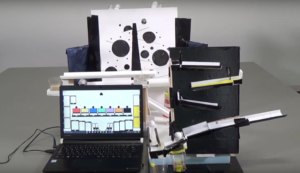
▲Basic Information Representation (Year 1)
Basic subjects to explore the possibility of new expressions utilizing engineering knowledge and implementing technology
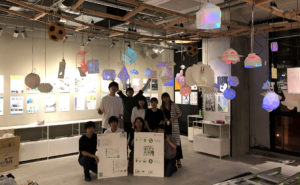
▲Information Design (Year 1 and 2)
Experience the flow of graphic design such as observation, information collection, editing, media expression
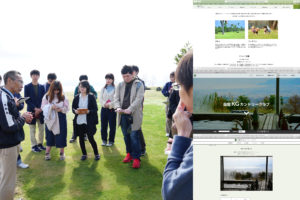
▲Human Interface Seminar (3rd Year)
Analysis of existing websites in the region, trial production, evaluation, and production of improvements
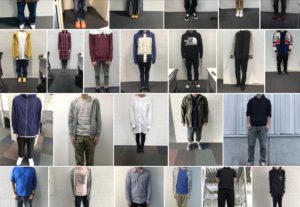
▲Workplace theory “Fashion Collection Book” (Year 3)
Practice observing and describing unconscious things (fashion), discovering and discussion
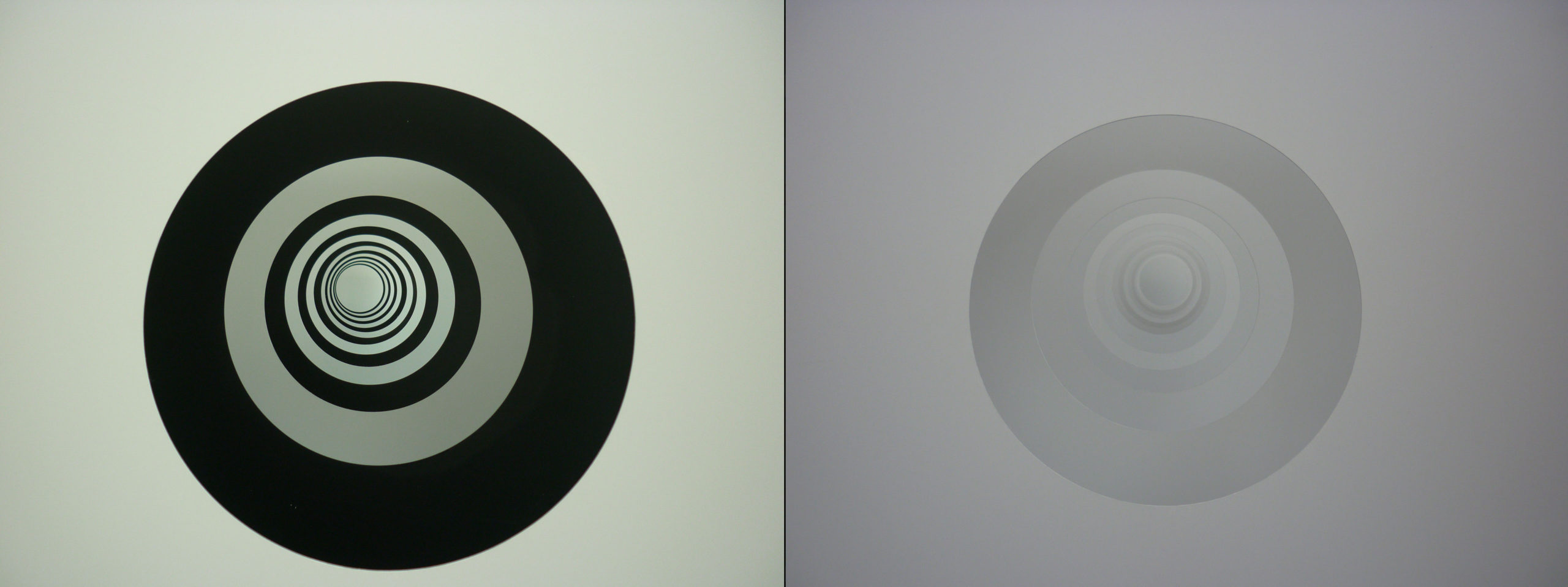
▲Perceptual System Theory “Perception Experiment in the Optical Tunnel” (3rd Year)
Class to learn human perception

▲PIKAKI: New Experience Development Project (3rd Year)
Digital content using cutting edge technology involving drawing by moving the arms and the body in a space
2020.3.23

 Return to List
Return to List